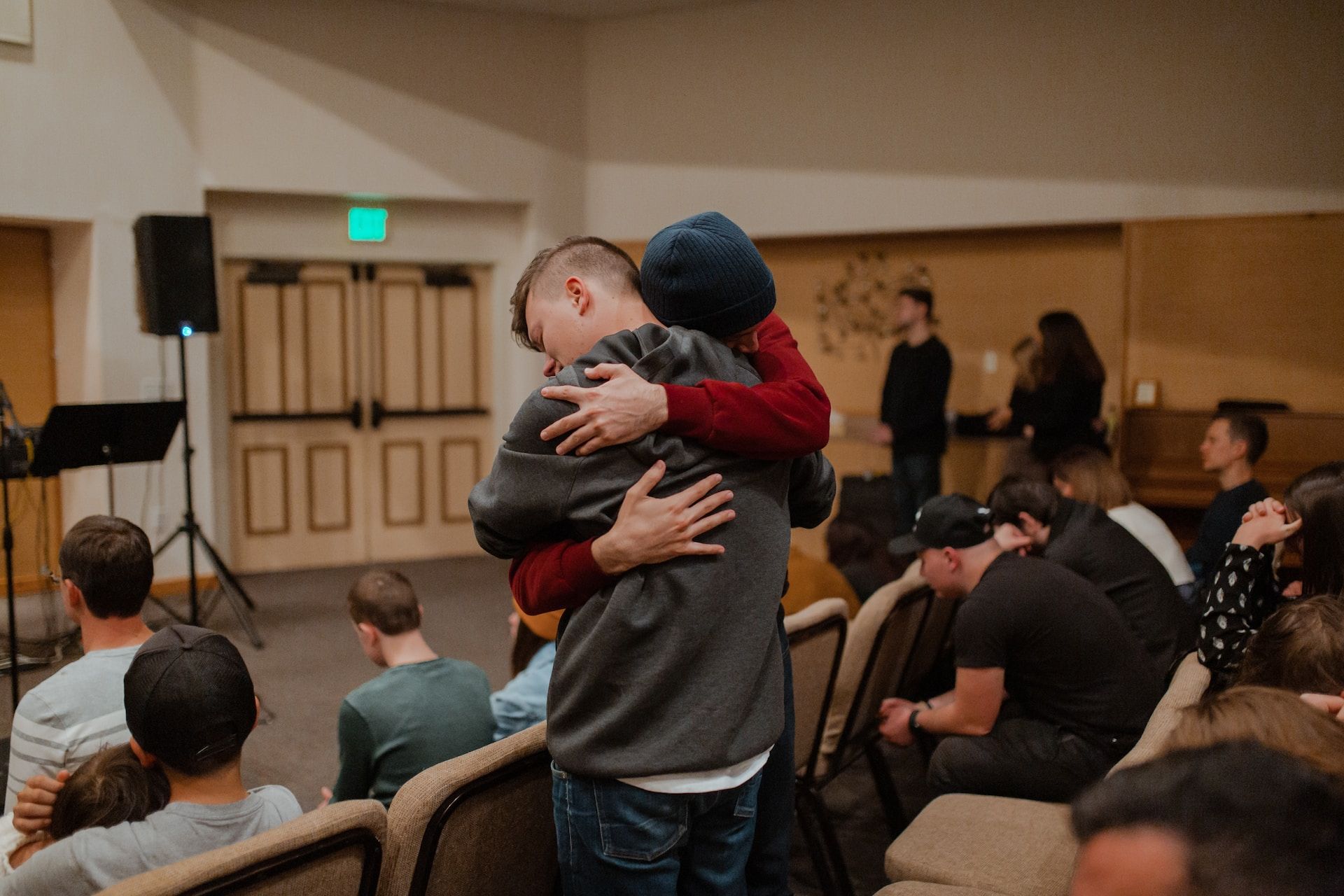Understanding the Difference Between Compassion, Self-Compassion, Sympathy, and Empathy

Meetelp
2023/12/07
4 min read
Relationship problems
Anxiety
Self-Esteem
Burnout
Stress
The festive season of Christmas, with its lights and cheer, often brings deeper reflections on our emotional connections with others and ourselves. It's a time when the concepts of sympathy, empathy, compassion, and self-compassion become more poignant, playing a vital role in enhancing our mental well-being and strengthening our relationships. This article delves into these emotions, exploring how we can cultivate them for a more fulfilling holiday experience and a compassionate life.
Sympathy: Recognizing Others' Struggles
"I'm sorry to hear that you're going through this"
Sympathy is often the first emotional response we have towards someone in distress. It involves feelings of pity and sorrow for someone else's misfortune. When we feel sympathy, we acknowledge and feel for someone's hardship from a distance. However, sympathy does not involve a deep emotional connection; it's more like looking at a situation from the outside and offering support.
Christmas and Sympathy: During Christmas, sympathy can manifest in many ways. It might be sending a thoughtful card to someone who has had a difficult year or donating to charities that help those in need. It's about recognizing that, while we may not fully understand someone's struggles, we can still offer our support and kindness.
Empathy: Walking in Someone Else's Shoes
"I can feel the pain in your words"
Empathy takes our emotional response a step further. It's about feeling what another person is feeling, putting ourselves in their shoes. This emotional mirroring can create a deeper connection, as it involves not just recognizing but also sharing in someone's emotional state.
Empathy During the Holidays: The holiday season can heighten emotions, making empathy especially important. It's about truly listening to our family and friends, understanding their joys and their sorrows as if they were our own. This Christmas, try to be present in conversations, offering a listening ear and an understanding heart.
Compassion: The Desire to Help
"I’m here for you. Let's find a way to make things better together"
Compassion builds upon empathy. It's not just understanding another person's problems but also having a desire to mindfully help them. Compassion involves an active desire to alleviate someone's suffering. It's empathy transformed into action.
Compassionate Acts: In the context of Christmas, compassion can be shown in various ways. From volunteering at a local shelter to simply being there for a friend who is going through a tough time, compassion is about taking that extra step to make a positive difference in someone's life.
Self-Compassion: The Gift of Kindness to Yourself
"I deserve the same kindness I give to others"
Self-compassion is recognizing that, just like anyone else, we are human and fallible. It's about being kind and understanding towards ourselves when we face difficulties or notice our flaws. Contrary to popular belief, self-compassion doesn't make us weak; it makes us resilient. It helps us accept that nobody is perfect, and we all have our unique challenges.
Self-Compassion During Festivities: The festive season often comes with a barrage of expectations and pressures. Practicing self-compassion means allowing yourself to enjoy the season without being overly critical of how you manage it. It's about accepting that it's okay not to have a perfect holiday setup or to feel festive all the time.
Overcoming the Inner Critic
Our inner critic can be relentless, driving us to meet often unrealistic standards, especially during the holiday season. This voice can make us feel inadequate or guilty for not doing enough or being enough. Self-compassion allows us to recognize this inner critic and gently remind ourselves that we are doing our best.
Handling the Holiday Pressure: When you find yourself stressed about holiday preparations or family dynamics, take a moment to practice self-compassion. Remind yourself that it's okay to have limitations and that you deserve to enjoy the season too.
Mindfulness: The Pathway to Compassionate Living
Mindfulness is the foundation of cultivating compassion. It involves being fully present in the moment, aware of our thoughts and feelings without judgment. Mindfulness allows us to respond to ourselves and others with kindness and understanding.
Practicing Mindfulness: This Christmas, try to incorporate mindfulness into your daily routine. Whether it's through meditation, mindful eating, or simply taking a few moments to breathe and be present, mindfulness can greatly enhance your emotional well-being.
Tips for a Compassionate Festive Season
- Listen Actively: Give your full attention to others, showing empathy and understanding.
- Give Generously: Whether it's your time, resources, or a simple act of kindness, every bit counts.
- Self-Care Rituals: Engage in activities that soothe and rejuvenate you.
- Be Kind to Yourself: Don't overburden yourself with expectations. Enjoy the season for what it is.
- Embrace Imperfections: Let go of the idea of a perfect Christmas and enjoy the unique beauty of your holiday.
As we celebrate this Christmas season, let's embrace the power of sympathy, empathy, compassion, and self-compassion. These are not just seasonal sentiments but year-round practices that can enhance our lives and the lives of those around us. If the holiday season feels overwhelming, Meetelp is here to help. Our platform connects you with therapists who can guide you in managing holiday stress, enhancing emotional connections, and practicing self-compassion. Embracing professional support through Meetelp is a step towards a healthier, more fulfilling festive experience. Let's prioritize our emotional health this season, with Meetelp supporting every step of the way.
Continue reading

Why Do We Marry? Exploring the Psychological Motivations and Barriers
Meetelp
2024/03/30
This article examines why people choose to marry, what can hold them back, and how addressing mental health issues with Meetelp can foster healthier marriages and life satisfaction.

Understanding Codependency: More Than Just a Relationship Issue
Meetelp
2024/02/19
Breaking free from codependency is no easy feat. It requires the deconstruction of long-held beliefs and the building of new, healthier ones. Meetelp’s algorithm can connect you with therapists who specialise in relationship issues, ensuring you receive tailored support.

Spread Love This Valentine's Day: Tips for Every Relationship Status
Meetelp
2024/02/12
This Valentine's Day, remember that self-love and mental well-being are at the heart of all forms of love. Meetelp app is here to support you on your mental health journey.